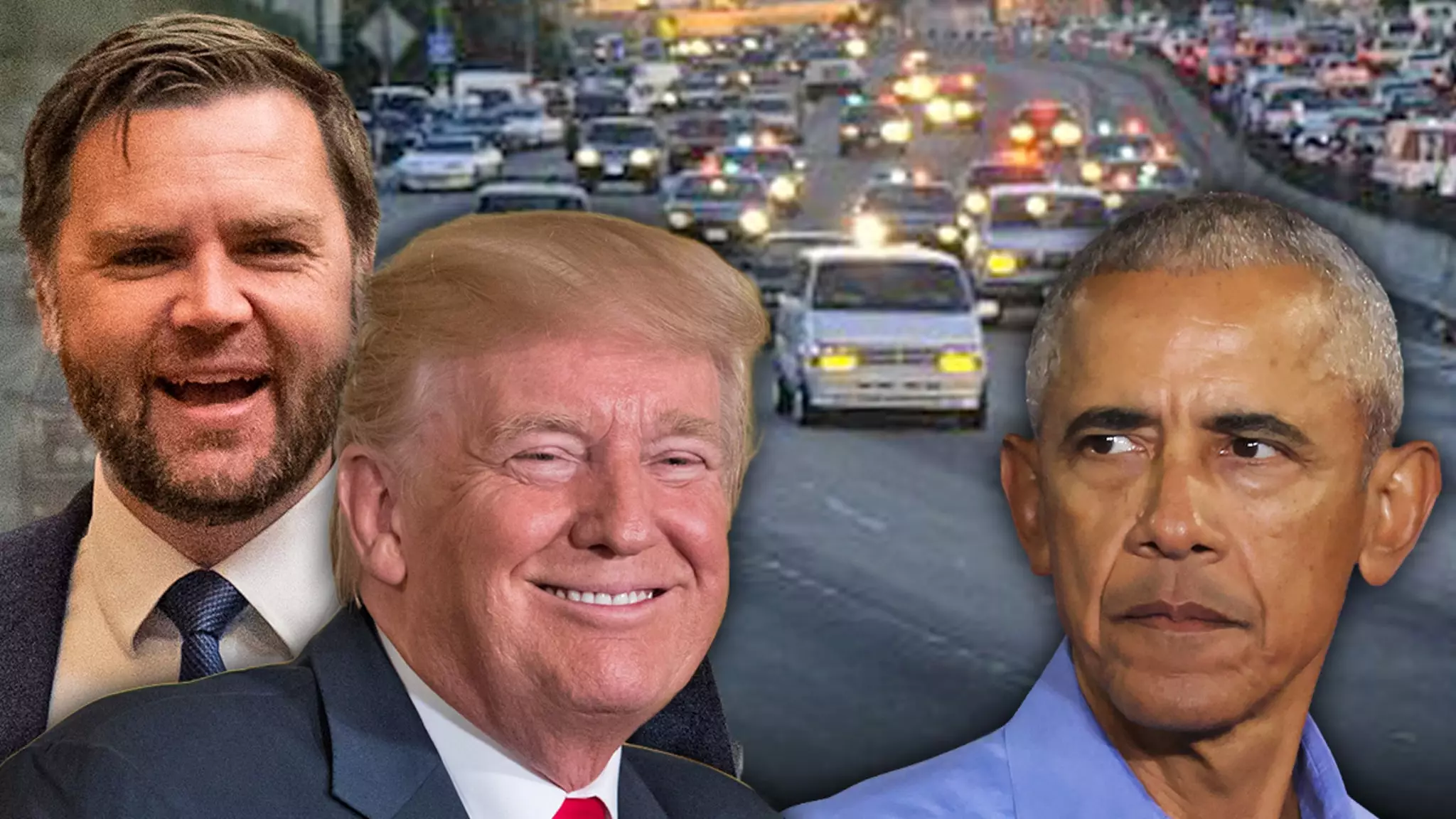In today’s polarized political landscape, social media has become the battlefield where narrative and perception are meticulously crafted. The recent incident involving former President Donald Trump’s provocative meme is more than mere entertainment; it reveals a calculated effort to shift public attention and influence public discourse. By posting an image reminiscent of the notorious O.J. Simpson chase, Trump’s tactic is to evoke a sense of drama and urgency, framing current political rivals in a sensational light. This approach underscores how political figures increasingly rely on visual symbolism and internet culture to communicate complex sentiments succinctly. It’s a modern strategy that capitalizes on virality and emotional reactions, often at the expense of nuanced debate.
The Power Dynamics Between Past and Present Leaders
The meme taps into a symbolic rivalry — a visual narrative that pits Barack Obama against contemporary figures like J.D. Vance and Donald Trump. The choice of the O.J. chase image, a defining moment in 1990s crime and media history, is intentionally provocative. It suggests a pursuit, an almost criminal chase, that insinuates political persecution or scandal. This association is not accidental; it reflects a broader tendency among political actors to cast opponents as villains in a larger story of justice or betrayal. The inclusion of Obama’s image alongside the others amplifies this message, hinting at ongoing conflicts rooted in political valorization and vilification. By doing so, Trump and his camp leverage emotional resonance and cultural references to ignite partisan fervor.
Implications for Democratic and Republican Narratives
This social media stunt is emblematic of the deeper struggle over narrative control within American politics. On one side, there are claims, like those surrounding Russian interference in the 2016 election, that aim to undermine Democratic legitimacy. On the other, there are accusations of distraction from legal and ethical controversies, such as the Jeffrey Epstein files. Both sides deploy imagery and rhetoric as weapons, seeking to fragment the opposing argument and rally their constituency. Trump’s meme, purportedly reposted from Donald Trump Jr., epitomizes this strategy. It doesn’t merely entertain; it manipulates perceptions, blurring the lines between political critique and outright spectacle. The real issue is whether voters are engaging with substantive policies or simply responding to the emotional cues crafted by their leaders.
The Risks and Rewards of Political Provocation
While these tactics can energize a base and dominate headlines temporarily, they risk further eroding civil discourse. Sensational imagery and mocking memes might succeed in rallying support, but they also deepen divisions. The danger lies in trivializing serious issues into mere digital entertainment, stripping debates of their complexity and importance. Nonetheless, in an era where attention spans are shrinking and media consumption is fragmenting, such provocative content has become an essential tool for politicians seeking to maintain relevance. The challenge is discerning genuine political vision from superficial spectacle: an ongoing dialogue about whether influence is best gained through constructive engagement or emotional manipulation. As the political arena becomes increasingly mediated through memes and soundbites, the stakes for integrity and authenticity are higher than ever.

